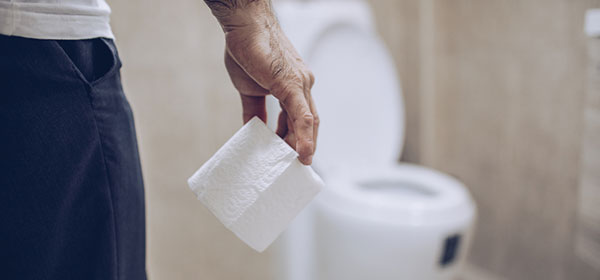Everyone poos. And although there are many experts who have their take on how often you should poo, the fact is that the frequency may vary according to the individual.
But there is a point where your lack of bowel movement should be a cause for concern.
First, let’s get down to basics.
Human faeces are a mixture of 75 per cent water, food, bacteria, protein, indigestible fibre and waste from your liver and intestines.
The average person poos once a day, but anywhere from three times a week to three times a day can be considered normal, depending on the consistency of the waste matter. In short, your poo should neither be too hard nor too soft.
A survey of 2000 poopers, conducted by Healthline, revealed the following bowel movement patterns:
- around 50 per cent poo once a day
- 28 per cent go twice a day
- 5.6 per cent go once or twice weekly
- 61.3 per cent poo in the morning
- 22 per cent reported go in the afternoon
- 2.6 percent poo late at night
- around 31 per cent reported consistency similar to that of a sausage or snake, and of a smooth and soft consistency.
How often you poo depends on your diet; that is, how much you eat and what you eat.
Western digestive systems, which are typically low in fibre, will evacuate less than Eastern digestive systems, which are typically high in fibre.
Your bowel movements remove waste build-up from your system, cleaning your colon and eliminating toxic build-up. So, it goes without saying that this process is important.
The food you eat – a healthy diet – is the most effective way to remove these toxins from your body, and regular bowel movements are essential to this process. If you feel you don’t poo enough, there’s always the option of taking laxatives or having a colon cleanse, although these alternatives, used long term, can disrupt your natural digestive processes.
As you age, you may be more likely to become constipated. This is due to reduced gastric movement and reduced mobility, both of which encourage digestion. Sometimes medications can cause constipation, too. For more regular bowel movements, eat more fibre, drink more water and try to increase your physical activity.
When should you worry about your bowel movements?
The only time you need to worry about your bowel movements is when they suddenly change and the change lasts for longer than a week. If you poo three times a day then suddenly you don’t poo for three days, it could be something as minor as a change in diet, constipation, or it could be a sign of something more serious, such as irritable bowel syndrome or worse, colon cancer. If you happen to see blood in your stool, or suffer severe abdominal pain, you should quickly get to a GP to have it checked out.
At the very least, you may need to revisit your diet or lifestyle choices.
How often do you poo? Have you ever worried about your digestion (or lack thereof)?
Health disclaimer: This article contains general information about health issues and is not advice. For health advice, consult your medical practitioner.
Related articles:
What your poo says about you
Are you pooing wrong?
Is your poo worth banking?

